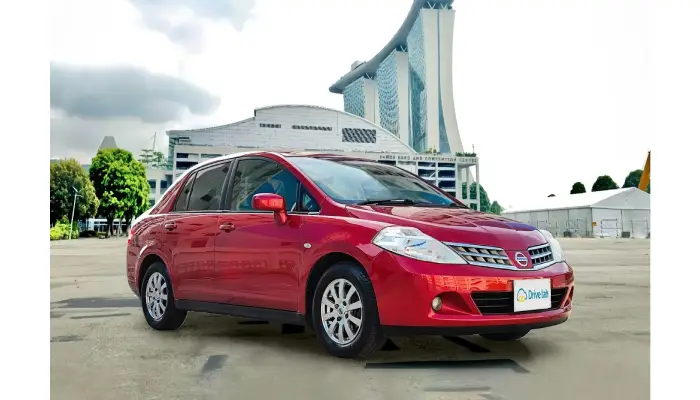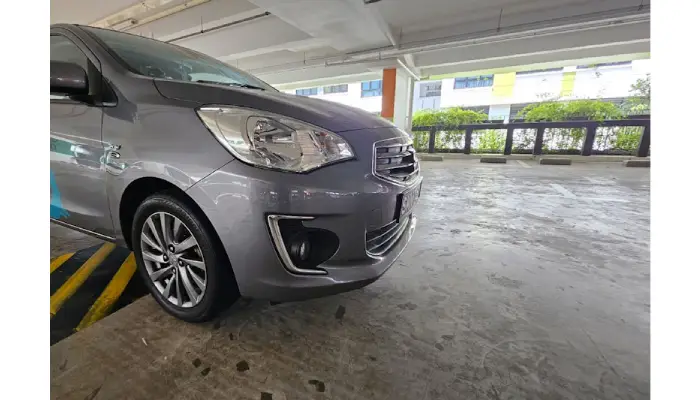Renting a car in Singapore offers a convenient way to explore the city-state, providing flexibility and independence as you travel. Whether you’re a tourist or a local needing temporary transportation, understanding the process and regulations surrounding car rentals is essential. In this guide, we’ll walk you through everything you need to know about car rental in Singapore, from booking to driving, and what you can expect along the way.
Choosing A Car Rental Company In Singapore
Before diving into the rental process, it’s important to find the right car rental provider. There are several well-established car rental in singapore offering a variety of vehicles, from compact cars to luxury cars, SUVs, and even 7-seater cars for larger groups.
When choosing a car rental company, consider the following factors:
- Reputation and Reviews: Look for companies with positive reviews and strong reputations for reliability and customer service. Websites like Google and Trustpilot can be helpful for this.
- Fleet Selection: Ensure the company offers the type of car you need. If you require a specific model or vehicle type (like a sedan, SUV, or an eco-friendly car), check their fleet availability online.
- Pricing: Compare rental prices, keeping in mind that rates can vary depending on the car type, rental duration, and location. Always check for hidden fees that may not be immediately obvious.
- Location: If you’re flying in, it might be more convenient to rent from an airport location. Alternatively, there are many rental offices around the city and MRT stations for more flexibility.
Requirements For Renting A Car In Singapore
Before you can rent a car in Singapore, you need to meet certain requirements. These are standard across most rental companies and include the following:
- Age Requirement: Renters must be at least 23 years old, though this can vary slightly depending on the rental company and the type of vehicle you wish to rent. For example, renting luxury cars or larger vehicles may require you to be over 25.
- Valid Driver’s License: To rent a car in Singapore, you must hold a valid driver’s license. For locals, a Singaporean driver’s license is sufficient. If you’re a tourist, you’ll need an International Driver’s Permit (IDP) along with your home country driver’s license. Make sure both are in English.
- Credit Card: Most rental companies require a credit card for payment and a security deposit. Debit cards may not be accepted, and some companies may place a temporary hold on your credit card for the duration of your rental.
- Insurance: Rental companies typically offer insurance options, such as Collision Damage Waiver (CDW) and Theft Protection. You can also check if your existing car insurance or credit card coverage applies to rental cars.
Booking Your Rental Car
Booking your car rental in Singapore is a straightforward process. You can either book directly with the rental company or through third-party websites such as Expedia or Rentalcars.com.
Tips For Booking
- Book in advance: To secure the best rates and availability, especially during peak seasons like holidays or major events, it’s advisable to book your car rental ahead of time.
- Check for promotions: Many rental companies offer discounts or special promotions for online bookings or longer rental durations.
- Understand the terms and conditions: Always review the rental agreement carefully. Pay attention to the fuel policy, mileage limits, additional driver fees, and cancellation policies.
Picking Up Your Rental Car
Once you’ve completed your booking, it’s time to pick up your car. Here’s what to expect:
- Documentation: Bring your valid driver’s license, credit card, and booking confirmation to the rental office. Some rental companies may ask for a passport if you’re a tourist.
- Vehicle Inspection: Upon arrival, the rental staff will inspect the car for any existing damage. Be sure to take photos or note any scratches, dents, or issues with the car before driving off to avoid being charged for damage you didn’t cause.
- Familiarization: Take time to familiarize yourself with the car’s controls before leaving. Ask the rental company for instructions on key features such as the air conditioning, GPS, or safety features. This is especially important if you’re unfamiliar with the model you’re renting.
Driving In Singapore
Driving in Singapore is relatively straightforward, but there are several important things to know before you hit the road:
- Road Rules: Singapore has strict traffic laws, and fines for violations can be heavy. Always adhere to the speed limits, stop at red lights, and avoid illegal parking. Driving under the influence of alcohol or drugs is a serious offense with severe penalties.
- Electronic Road Pricing (ERP): Singapore has an ERP system in place for tolls. This means that certain roads and highways will require you to pay tolls using an in-vehicle unit (IU) that automatically deducts the toll charges. Rental companies typically provide an IU device, but it’s important to ensure it’s working properly.
- Parking: Parking in Singapore can be limited and expensive. Look for designated parking spaces in shopping malls, hotels, or public parking lots. Always park in authorized areas to avoid fines.
- Traffic and Roads: Singapore has a well-developed road network, and driving is generally easy. However, be aware of heavy traffic during peak hours, especially in the central areas and on expressways.
Fueling The Car
Rental cars in Singapore usually come with a full tank of fuel, and you’re expected to return the car with a full tank as well. If you don’t have time to refuel, rental companies will charge you a premium for refueling the car, which can be much more expensive than filling it up yourself.
- Fuel stations: Fuel stations are widespread in Singapore, and many accept major credit cards. Look for stations that offer 24-hour service for added convenience.
Returning The Rental Car
When your rental period is over, you’ll need to return the car. Here’s what to expect during the drop-off:
- Condition of the Car: The car should be returned in the same condition you received it. This includes the interior and exterior of the vehicle. Any damage or missing items will incur additional charges.
- Fuel Level: Ensure the fuel tank is full. If not, the rental company will charge you for refueling at a higher rate.
- Drop-off Location: Make sure you know the return location, whether it’s at the same place you picked up the car or a different one. Some rental companies offer one-way rentals for an additional fee.
- Inspection: Just like when you picked up the car, the rental company will inspect it for damage upon return. If everything is in order, the security deposit (if applicable) will be refunded to your credit card.
Additional Considerations
- Extra Fees: Rental companies may charge for extras such as GPS devices, child seats, or additional drivers. These fees are usually optional, but they can add up if you’re not prepared.
- Toll Charges: In addition to ERP tolls, some rental companies charge extra fees for using toll roads outside of Singapore, especially if you drive into neighboring Malaysia.
- International Driving: If you plan to drive into Malaysia, make sure your rental company permits cross-border travel. You may need to purchase additional insurance or pay a cross-border fee.
Conclusion
Car rental in singapore can be a smooth and convenient experience if you’re prepared. By choosing the right rental company, understanding the requirements, and being aware of the local driving regulations, you can enjoy a seamless car rental experience. Whether you’re in the city for business, leisure, or need a car for a short-term trip, renting a car in Singapore offers the flexibility to explore the island at your own pace

Marian Shields, a dynamic marketing expert, orchestrates brand narratives with finesse and insight. With a keen understanding of consumer behavior and market dynamics, Marian navigates the ever-changing landscape of marketing strategy, crafting compelling campaigns that resonate with audiences worldwide. Through her strategic prowess and creative vision, she helps businesses of all sizes unlock their full potential and achieve tangible results in the competitive marketplace.






